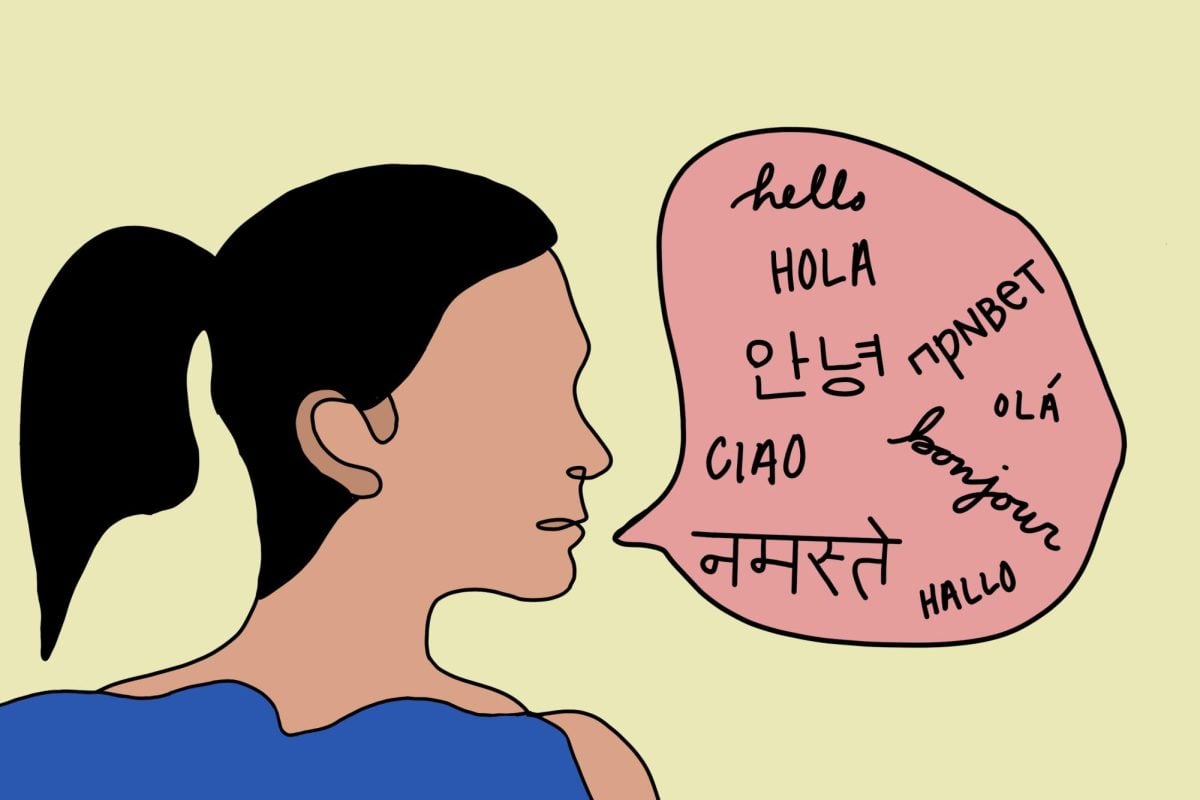The Buffett Institute for Global Affairs approved a grant last spring to fund the Language Curricula and Gender working group at Northwestern, which researches how conventional foreign language education addresses gender equity and representation.
Since its launch, the group’s survey of language instructors found that many are aware of inclusivity issues and willing to work toward improving them.
Middle East and North African languages Prof. Rana Raddawi and computer science and learning sciences Prof. Marcelo Worsley lead the group. Raddawi said the goal of the group is to examine language curricula to see whether educational practices promote gender equity and inclusion. The program aims to improve aspects of the curriculum where necessary.
“It’s not inclusive to have a class and now be told, ‘Sorry, you have to choose between one of these pronouns,’” Worsley said. “How do we make sure especially our LGBTQ+ students are feeling included in these language classes?”
The group has combed through course materials in search of cases of inequity, according to Raddawi. She said specific stereotypes based on gender stood out.
Raddawi and several colleagues published a piece in the Diplomatic Courier in March titled “Real World Gender Equity Starts with Better Curricula,” arguing that education can be used to combat gender inequity.
Spanish and Portuguese Prof. Shannon Millikin, a working group member, noted a lack of female leads and authors in supplementary materials she reviewed.
“If society has gender inequality, then that’s going to be reflected in feature films, in documentary films, in short films, in terms of the work of art itself and the artists,” Millikin said.
Millikin said there are difficulties with gender neutrality in the Spanish language. She said that the use of an “e” at the end of a word, like “Latine,” is more prevalent in academia than in the broader Spanish-speaking community.
Millikin added she will lead several small group discussions and hopes to invite the broader community to learn more about gender inequity in language.
“You can’t control language,” Millikin said. “Language is a living, evolving thing used by millions and millions of people.”
The group plans to expand on its research with events aimed at spreading awareness of inequity in language curricula, according to Worsley. He said the group will hire several undergraduate gender equity fellows during Winter Quarter, who will work with their language instructors to promote inclusivity in course materials.
Raddawi and working group member and German Prof. Franziska Lys will invite Jessica Wade of Imperial College London to discuss writing Wikipedia biographies of female scientists. They will also host neurobiology Prof. Nina Kraus to speak on how the brain’s perception of the world is influenced by gender.
Raddawi said she hopes these events and future publications will bring greater awareness to gender inequity in language curricula and attention to the group’s work.
“I’m hoping to really expand our work and let concerned organizations in the world know more about our work so that we can continue,” Raddawi said. “This cannot be just a two-year project, but a long-term project to … spread awareness and make a change in the world in this direction.”
Clarification: This article has been updated to accurately reflect Shannon Millikin’s view on the prevalence of gender-inclusive language in academia and the Spanish-speaking community.
Email: sashadraeger-mazer2027@u.northwestern.edu
Related Stories:
– Foreign language faculty and students discuss issues with lack of gender-affirming language
– ‘Why not Arabic?’: MENA Languages program to launch Arabic minor in Fall Quarter
– Gender and Sexuality Studies Program works to expand diversity efforts amid student critiques







